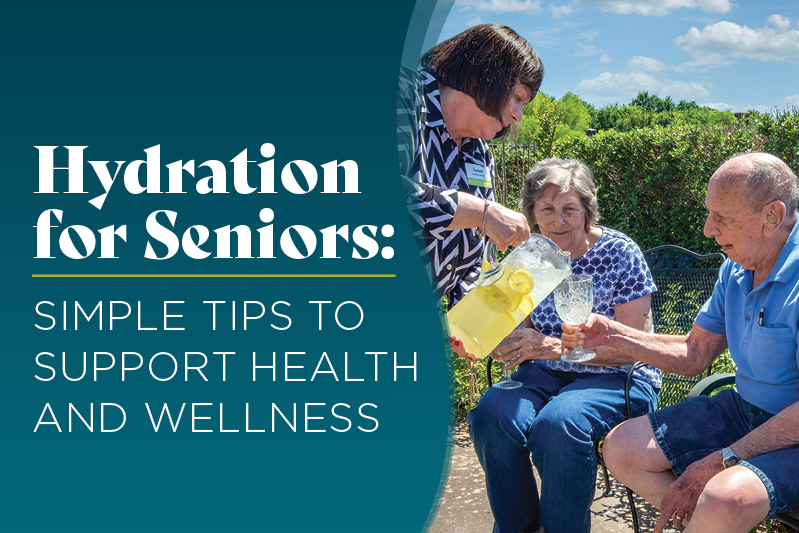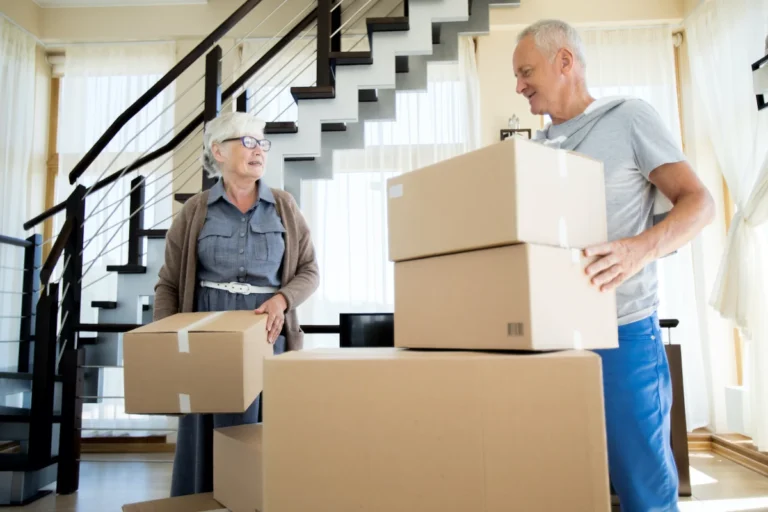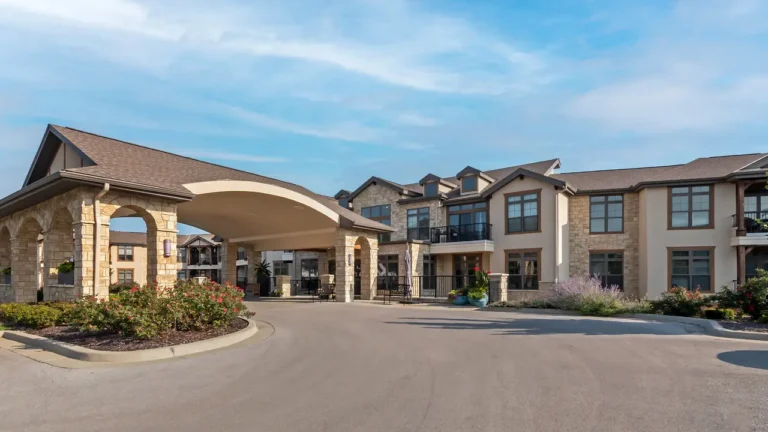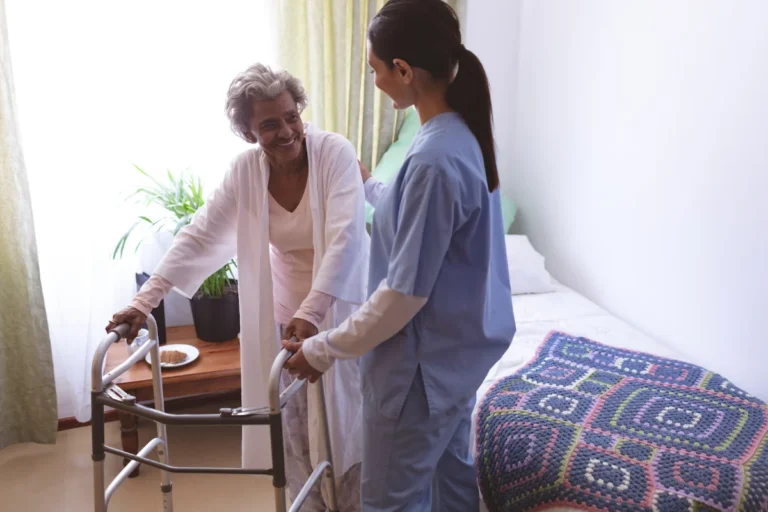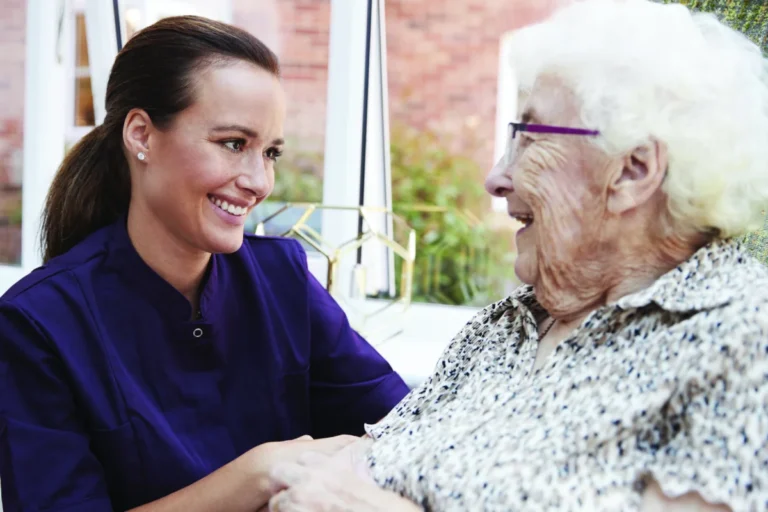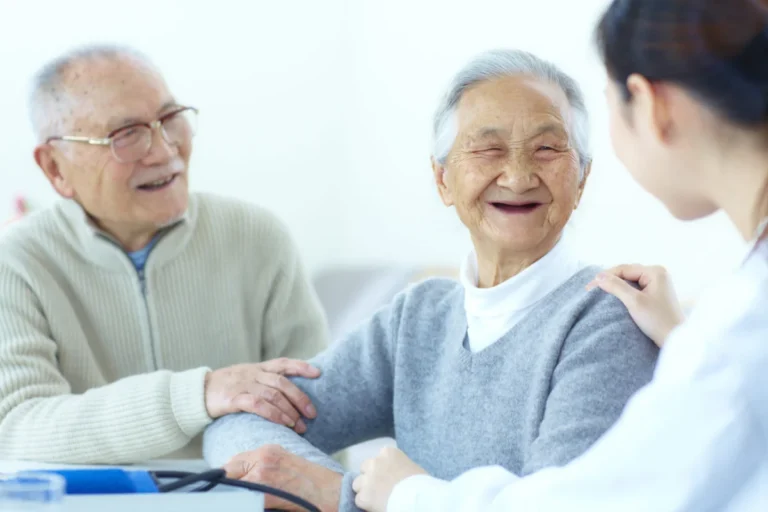As we age, staying hydrated isn’t always easy, but it’s essential for senior health. The importance of hydration in the elderly can’t be overstated. Proper hydration supports everything from smooth digestion to clear cognitive function and balanced electrolytes.
Mild dehydration in older adults can lead to serious problems. Research studies indicate that up to 20% of older adults may experience chronic dehydration. This can raise the risk of falls, confusion, kidney problems and more.
The good news? Elderly dehydration prevention is easy. It takes a few daily habits, smart drink choices and a little awareness of what your body needs.
In this guide, you’ll learn about the link between hydration and senior health, the causes of dehydration in seniors, how much water to drink, the best drinks for older adults and easy tips for staying hydrated long term.
The Link Between Hydration and Senior Health
Proper hydration supports everything from healthy kidney function and smoother digestion to balanced electrolytes and clear cognitive function. It is a key part of senior health.
Dehydration can contribute to constipation, urinary tract infections, balance problems and confusion. Staying well-hydrated helps older adults feel their best and maintain energy throughout the day.
Why Seniors Are at Greater Risk of Dehydration
Older adults are more likely to become dehydrated because of natural changes that happen with age, including:
- Natural physiological changes: The total amount of body water decreases as we age, meaning your body has a smaller reserve to draw from
- Medications: Certain prescriptions, like diuretics or laxatives, can increase fluid loss
- Reduced thirst sensation: Many older adults don’t feel thirsty until they’re already dehydrated, which makes elderly dehydration prevention so important
Signs and Symptoms of Dehydration in the Elderly
Sometimes dehydration can sneak up on you without your realizing it. Watch for these symptoms of dehydration in elderly adults:
- Dry mouth or cracked lips
- Confusion, tiredness or feeling faint
- Dark urine or reduced urine output
- Dizziness, headaches or muscle cramps
- Trouble with balance
If you have severe dehydration symptoms, like confusion, fainting or not urinating for hours, get medical help right away.
How Much Water: The Right Amount for Seniors
So, how much water should a senior drink every day?
Traditionally, experts recommend about 64 ounces of water daily, but individual needs vary. Some people may need more or less depending on health status and medications. Your recommended amount of water also may vary based on your body weight, activity level and health conditions.
Instead of trying to drink a certain amount, focus on drinking fluids all day. Remember, hydration comes from more than just water. Foods with a lot of water, like cucumbers, melons, broths and soups, can help keep you hydrated. Drinks such as milk and herbal tea also help with staying hydrated.
Myth: You can never drink too much water. Fact: While staying hydrated is important, drinking too much water too quickly can lead to an electrolyte imbalance. If you’re unsure how much water is right for you, talk to your doctor.
Best Hydrating Drinks for Seniors
It is no surprise that water is the best choice to stay hydrated, but there are other options too. Some of the best drinks for elderly hydration include:
- Herbal teas: Naturally caffeine-free options like chamomile or peppermint can be soothing and hydrating
- Milk: Skim or low-fat milk is naturally high in electrolytes and can help replenish fluids
- Electrolyte drinks: Sports drinks designed for seniors or doctor-approved rehydration solutions can be helpful – just look for low-sugar options
Drinks to Limit
Limit drinks with added sugar, which can raise body weight and affect overall health.
Coffee and tea in moderation are fine (stick to one 8-ounce cup per day), but too much caffeine can have a mild dehydrating effect.
Limit sodas and alcohol, which can contribute to dehydration in older adults. Sugary sodas and drinks with added sugar can contribute to dehydration, weight gain and other health issues.
Foods That Help With Hydration and Senior Nutrition
Staying hydrated isn’t just about what you drink. What you eat matters too.
Many fruits and vegetables are naturally high in water content and can boost your fluid intake in a tasty, healthy way.
Some of the best foods that help with hydration include:
- Cucumbers and celery: Crisp and refreshing, with high water content
- Melons: Watermelon, cantaloupe and honeydew are delicious ways to add extra fluids
- Citrus fruits: Oranges and grapefruits provide hydration and vitamin C
- Soups and broths: Warm, nourishing and full of fluids – a classic comfort
- Yogurt and smoothies: These can be hydrating snacks that also add protein and nutrients
At Tutera Senior Living communities, our chef-prepared menus often include water-rich ingredients as part of balanced senior nutrition, so residents can enjoy delicious meals that support healthy hydration every day.
Hydration and Common Senior Health Conditions: Kidney Function and Heart Health
Hydration affects many key parts of senior health, including:
- Kidney function: Staying hydrated helps the kidneys remove waste and lowers the risk of UTIs
- Cognitive function: Proper fluid intake supports clear thinking and reduces confusion
- Heart health: Some heart medications or conditions can affect fluid balance, so getting the right amount of fluids helps your heart work its best
Good hydration is always part of senior nutrition. Proper hydration also helps keep your heart working well, which supports healthy blood flow and helps manage high blood pressure in some seniors.
For more healthy hydration guidelines, the National Council on Aging’s hydration tips are a great additional resource.
Tips to Help Seniors Stay Hydrated
Making hydration part of your daily routine is not difficult. Staying hydrated as you age doesn’t have to be complicated.
Simple Ways to Drink More Water
Elderly dehydration prevention starts with simple habits:
- One of the simplest hydration tips for seniors is to drink more water throughout the day, even if you don’t feel thirsty
- Keep a favorite cup or bottle within easy reach
- Add a slice of lemon, cucumber or berries for flavor
- Use a hydration schedule or app to remind you to sip
- Include hydrating foods like fruits and vegetables in every meal – this is an easy way to boost senior nutrition too!
- Enjoy social moments, like a glass of infused water with neighbors after a fitness class, to make staying hydrated more fun
Staying active is one of the best ways to support your overall health and well-being as you age. An active lifestyle can increase how much fluid your body needs each day, so remember to hydrate before and after activities. For more inspiration, check out our Active Lifestyles for Seniors guide.
These simple hydration tips help seniors prevent dehydration and easily make healthy hydration a part of everyday life. Want more ideas to support senior health? Check out our Healthy Living Tips for Seniors blog. It’s full of ideas to help you and your loved ones feel your best every day.
Senior Hydration FAQs: Signs, Symptoms and Prevention
Q: Why is hydration important for seniors?
A: It helps maintain energy, balance, digestion and clear thinking – and lowers the risk of health complications.
Q: What are the signs of dehydration in older adults?
A: Look for dry mouth, dizziness, confusion and dark urine.
Q: How much water should a senior drink daily?
A: About 64 ounces is a good guideline, but your needs may vary. Check with your doctor for personal recommendations.
Q: What drinks are best for hydration?
A: Water is best! Herbal teas, broths, milk and low-sugar electrolyte drinks are also great options. Look for low-sugar or no-added-sugar options to stay hydrated without unnecessary calories.
Q: Can certain medications cause dehydration in seniors?
A: Yes. Diuretics, laxatives and some heart or blood pressure medications can affect fluid levels. Talk to your doctor if you’re unsure.
Q: Are sports drinks good for seniors?
A: They can help restore electrolytes if needed, but choose low-sugar options designed for older adults. Always check with your doctor.
Q: Can weather affect blood pressure in seniors?
A: Yes. Hot and cold temperatures can affect hydration and how your body regulates blood pressure. Staying hydrated helps protect your heart. For more information, read our Can Weather Affect Blood Pressure? blog.
Q: Are there foods that help with hydration?
A: Yes! Fruits like watermelon, cucumbers and soups add extra fluids.
Q: How can caregivers help?
A: Encourage regular sips, offer favorite cups and make hydration part of daily routines and social time.
Experience Senior Health, Nutrition and Hydration With Tutera
At Tutera Senior Living & Health Care, our staff recognizes the vital role a healthy diet and healthy hydration play in the lives of our senior residents. Our experienced teams of care providers are skilled and knowledgeable about proper nutrition and healthy aging.
Our focus on healthy living extends to our luxurious amenities across our communities. Our communities offer the latest in gym and yoga equipment to accommodate all levels of ability with instructor-led and private coaching sessions, and our communities provide the very best choices in dining and snacks throughout the day.
We recognize how important hydration is for senior health and overall senior nutrition. Our experienced care providers know the importance of hydration in elderly adults and provide chef-prepared meals, healthy snacks and plenty of drink options to make elderly dehydration prevention easy and enjoyable every day.
Communities like Mission Chateau Senior Living Community and St. Paul’s Senior Community help residents stay hydrated and nourished with chef-prepared meals, healthy snacks and plenty of drink options served daily.
Watching hydration is one of the easiest ways to support good senior health and help older adults stay physically active. Interested in finding a Tutera community near you? Try our location finder or contact us today to learn more about our communities, care and commitment to helping every resident live well.

